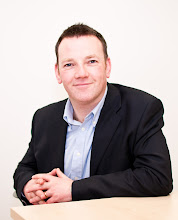The curious incident of the leader who came
out of his cockpit
Its impact has stayed me since then. And I have
told a few of my coaching clients the story to illustrate a point regarding
their leadership.
It was about 7pm in a plane on the tarmac at London
City Airport. All the passengers had the usual look of weariness from a
combination of a day’s work and the usual battle required to get through
airports in this day and age.
We were waiting for the “final few passengers” or the plane was
“going through its final checks or something” when the captain turned on the PA
system and spoke to the passengers about the expected flight time, the flight
path and the weather in Dublin.
Nothing strange in any of that. But it was not what
he said that stayed with me but HOW he did it.
The pilot did something I have never seen before or
since. He came out of the highly secured cockpit, picked up the phone that the
steward/stewardesses use and he looked at us and we looked at him as he spoke.
This was the man you was going to take a 100 people
and lots of fuel up into the air and down again safely and instead of a voice
in the ether we got to see the leader.
And it made a difference. I paid more attention to
what he was saying, I bizarrely felt safer because I got see him and he wanted
to see us, and I felt respected after two hours of being treated like just
another object moving through check in and security. It changed my mood.
Why do I tell the story to my clients – cause too
many have got caught leading their teams through emails or from behind the “always
busy” closed office door.
The pilot didn't have to stand there in front of
his passengers. Am sure he could have found something else to do.
But it had a powerful impact on me. Still does 4 months later.
So is it time you come out of your cockpit and be
visible to your team and organization?
